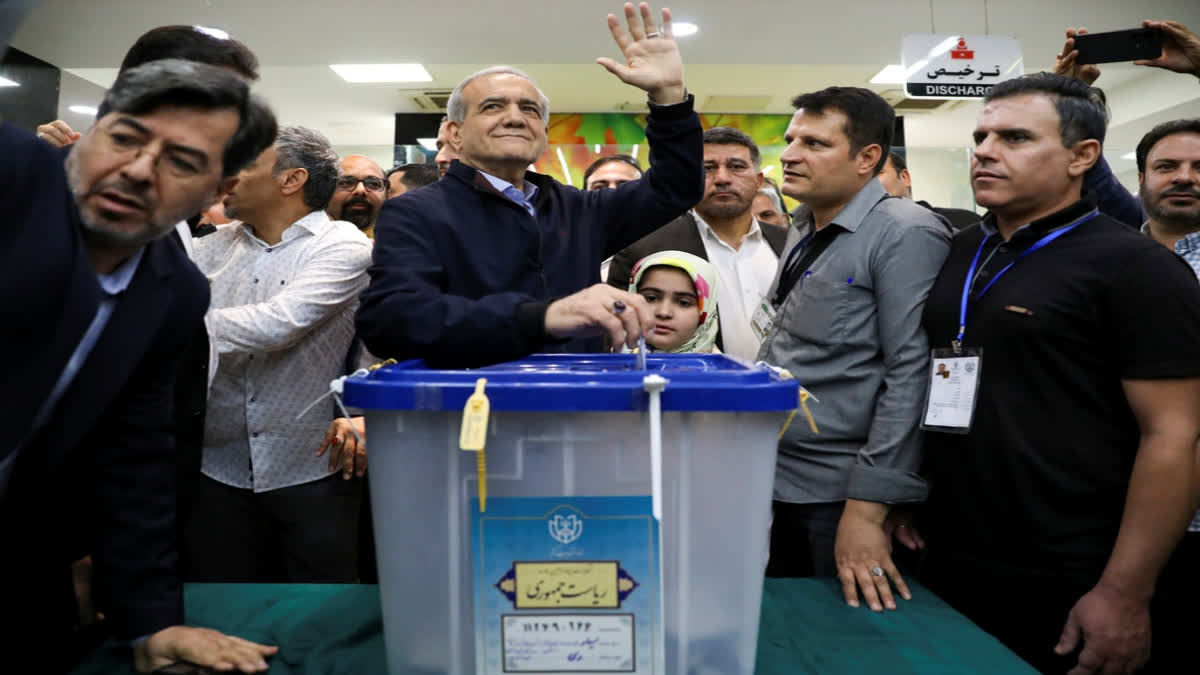Tehran(Iran): Iran's snap presidential election is set for a runoff next week after reformist-backed Masoud Pezeshkian and hardliner Saeed Jalili emerged victorious but failed to clinch a majority in a poll with a record-low turnout, according to Al Jazeera.
According to the Ministry of Interior, just 40 per cent of more than 61 million eligible Iranians voted, setting a new low in presidential elections since the country's 1979 revolution. The final data from election headquarters at the ministry revealed that Pezeshkian won more than 10.41 million votes from a total of more than 24.5 million ballots tabulated, trailing former nuclear negotiator Saeed Jalili by 9.47 million votes.
Only the second time since the 1979 revolution has a presidential election been held, reported Al Jazeera. Mohammad Bagher Ghalibaf, the Conservative Speaker of the Parliament secured 3.38 million votes, and conservative Islamic leader Mostafa Pourmohammadi, got 206,397 votes and was therefore knocked out of the race. Two other candidates, Tehran Mayor Alireza Zakani and government official Amir-Hossein Ghazizadeh Hashemi, dropped out.
Meanwhile, Ghalibaf, Zakani, and Ghazizadeh called on their supporters to vote for Jalili in the run-off next Friday to ensure victory for the "revolution front". The snap election on Friday occurred inside the 50-day legally mandated deadline for selecting a new president after Ebrahim Raisi and seven others, including Foreign Minister Hossein Amirabdollahian, were killed in a helicopter accident on May 19.
The vote on Friday witnessed a low turnout, as has been the case in all key elections over the last four years, but the final figure was far lower than the 45-53 per cent predicted by surveys. Raisi was elected with the lowest presidential turnout in Iran's more than four-decade history, at 48.8 per cent, reported Al Jazeera.
The parliamentary election in March and May had the lowest turnout of any major poll since Iran's 1979 revolution, at slightly less than 41 per cent. Jalili, a senior member of the Supreme National Security Council, has pledged to reduce inflation to single digits and improve economic growth to an impressive 8 per cent, while also combating corruption and incompetence. He recommends taking a stronger stance against the West and its supporters.
Pezeshkian was the only moderate among six persons authorized to run by the Guardian Council, the constitutional authority that examines all candidates. His supporters have portrayed him not as a miracle worker, but as a potential president who might make things somewhat better while maintaining that a victory for Jalili would signify a big setback.
However, it is important to note that Jalili's name is associated with years-long nuclear discussions in the late 2000s and early 2010s, which finally led to Iran's isolation on the global stage.
Read More



